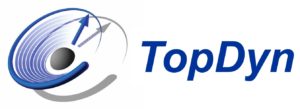

Seminar über die Physik der kondensierten Materie (SFB/TRR173 Spin+X und SFB/TR288 Kolloquium, TopDyn-Seminar)
May 15, 2014 at
2 p.m.
in
Minkowski-Raum, 05-119, Staudingerweg 7
Univ-Prof. Dr. Jure Demsar
Univ.-Prof. Dr. Hans-Joachim Elmers
Univ.-Prof. Dr. Mathias Kläui
Univ.-Prof. Dr. Thomas Palberg
Note: Ansprechpartner: Herr Elmers
Microwave Spintronics
Prof. Dr. Andrei Slavin (Oakland University, Rochester, Michigan, USA)
One of the major trends in the modern microwave technology is the use of spin currents for generation and processing of microwave signals. Spin currents (or "currents" of angular momentum) can exist in the form of currents of spin-polarized electrons or in the form of propagating spin waves. In some cases (e.g. using the spin-Hall effect or other spin-orbital effects) it becomes possible to completely separate charge and spin currents caused by moving electrons, and to use the produced pure spin currents for the generation of microwave signals.
In this lecture the experimental evidence and theoretical description of a novel type of a microwave nano-oscillator driven by a pure spin current generated via the spin Hall effect is presented. It is shown that a spatially localized spin current in the bi-layer of permalloy and platinum excites a non-propagating spin wave mode of a microwave frequency, and that this mode has a nonlinear self-localized solitonic character. Thus, the existence of a microwave spin-Hall oscillator (SHO) driven by a pure spin current has been demonstrated.
The influence of external microwave signals on SHO has been investigated, and it was shown that SHO can be phase-locked to an external microwave signal having frequency twice larger than the frequency of the auto-oscillation. This effect opens a possibility to synchronize several SHO and to develop practical nano-sized microwave generators of a sufficient power. It was found that the phase-locking exhibits an apparent threshold determined by the magnetic fluctuations pumped above their thermal level by the external spin current.
All interested are cordially welcome!